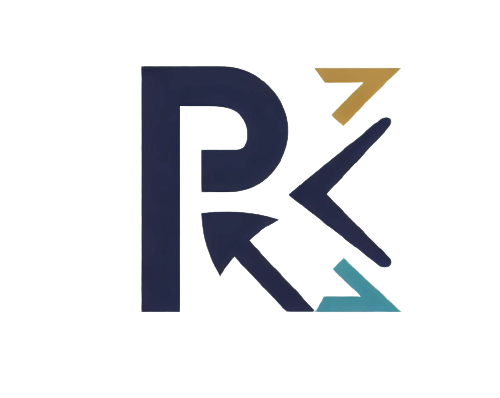451 isn’t your typical ‘404 Not Found’ or ‘500 Internal Server Error.’ It signifies that the website you’re trying to visit is unavailable for legal reasons. This could be due to government censorship, court orders, or any legal mandate that restricts access to specific online content.
The number ‘451’ holds a literary significance, paying homage to Ray Bradbury’s iconic novel, Fahrenheit 451. In Bradbury’s dystopian world, books are banned, and any found are burned by ‘firemen.’ Similarly, the 451 status code signifies the burning, or rather, the unavailability of digital content due to legal restrictions.
Regularly assessing the website’s material for compliance with local laws minimizes the risk of encountering the 451 status code. Implementing age restrictions, content warnings, or geoblocking certain content can also contribute to maintaining compliance, allowing the site to be accessible to a wider audience.
Legal Implications of the 451 Status Code
The 451 status code confronts the delicate balance between freedom of speech and the necessity to comply with legal regulations. This status code underscores the challenges faced by content creators and platforms alike. Governments and regulatory bodies across the globe impose varying laws, leading to the censorship of online content that might violate these regulations. When a website displays the 451 error, it serves as a reminder of the intricate legal tapestry that governs the digital landscape. 
What might be perfectly acceptable content in one country could be grounds for censorship in another. This variation necessitates a profound understanding of international internet laws for website owners and developers. Failing to comprehend these laws can lead to the implementation of the 451 status code, making the content inaccessible to users in specific regions.
Website owners and developers encounter significant challenges when their content falls under legal scrutiny. Ensuring compliance with the myriad of regulations is daunting, requiring a combination of legal expertise and technical finesse. It’s about implementing the necessary technical solutions to display the 451 status code accurately. Collaboration between legal experts and skilled developers is paramount, ensuring that websites remain compliant with the law while delivering a seamless user experience.
Steps to Outsmart the 451 Status Code
Ensure that the restriction imposed by the 451 status code is legitimate. Sometimes, websites might display this code erroneously due to technical glitches. Verify the legal reasons behind the restriction to confirm if it’s valid.
If you believe the restriction is unjust or unclear, consult legal experts well-versed in internet laws. They can assess the situation and provide guidance on potential legal avenues to challenge the restriction.
A Virtual Private Network (VPN) can be a powerful tool to bypass geo-restrictions. By routing your internet connection through servers in other countries, VPNs can make it appear as though you’re accessing the internet from a different location, potentially enabling access to the restricted content.
Tor (The Onion Router) is a privacy-focused web browser that can help you bypass censorship and access blocked content. It routes your internet traffic through a network of volunteer-run servers, concealing your IP address and granting you anonymity online.
In some cases, websites might restrict access on desktop devices but not on mobile devices or their respective applications. Try accessing the content through mobile browsers or dedicated apps to see if you can bypass the restriction.
Mirror or proxy websites act as intermediaries, allowing you to access blocked content indirectly. These sites replicate the original content while bypassing restrictions. However, exercise caution and choose reputable mirrors to avoid potential security risks.
Google Translate can serve as an unconventional tool to bypass restrictions. By entering the restricted website’s URL into Google Translate and translating it from, say, English to English, you might access the content unhindered.
Traditional search engines might not always display restricted content in their results. Consider exploring alternative search engines that prioritize privacy and access to a broader range of websites.
Stay informed about the latest tools and techniques to bypass restrictions legally and responsibly.
If Developers Facing the 451 Status Code
Modifying or removing content that raises legal concerns is essential. Regular content audits can help ensure ongoing compliance with relevant regulations, preventing the recurrence of the 451 status code.
Developers should collaborate closely with legal experts who specialize in Internet laws. By aligning technical solutions with legal expertise, developers can navigate the legal landscape more effectively.
Geoblocking technology restricts access to specific regions, ensuring that content compliant with local laws is accessible while limiting access in areas where it might violate regulations. Implementing geoblocking can be an effective strategy to prevent the 451 status code from affecting a broader audience.
When the 451 status code is triggered, it’s vital to provide users with clear and informative error messages. These messages should explain the legal reasons for the restriction, helping users understand why they cannot access the content. Transparency can mitigate user frustration and maintain trust.
Content Delivery Networks are instrumental in delivering content efficiently while also providing geoblocking capabilities. CDNs can help optimize content delivery, ensuring compliance with legal regulations and reducing the likelihood of encountering the 451 status code.
Developers should stay vigilant, continuously monitoring legal developments that might impact their websites. Regular updates from legal experts can help developers adapt their strategies to remain compliant and avoid legal pitfalls.
SSL encryption not only enhances website security but also ensures that the data transmitted between the user and the website remains private. Encrypted connections can bolster user trust, especially when accessing restricted content, minimizing potential concerns related to legal restrictions.
In the event of legal challenges, having a robust backup system in place is crucial. Regularly backup website data and content to prevent loss in case of unforeseen circumstances. A reliable backup system provides developers with a safety net, allowing for quick recovery and mitigation of potential legal complications.
Regular training and education sessions can empower developers to adapt their strategies proactively, ensuring that their websites remain compliant and user-friendly, avoiding the 451 status code.
